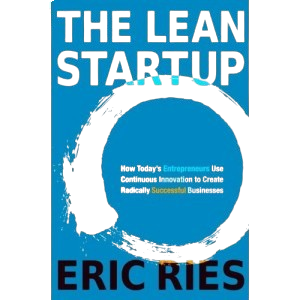
The Lean Startup by Eric Ries is a book about his approach to building products and creating companies.
One concept I embraced from this book is to view your startup is a set of experiments to systematically figuring out the right things to build. It involves defining your startup as a set of hypotheses you need to test, and try to be efficient in finding out what works and what doesn’t. An important aspect of Lean Startup methodology is experimentation. It mentions some leap of faith assumptions startups need to test, such as:
- Value hypothesis: tests whether a product really delivers value to customers once they are using it
- Growth hypothesi s: test how new customers will discover a product
There are useful concepts mentioned in the book, such as vanity metrics, cohort analysis, and doing things in small batches. One concept I like is genchi genbutsu, originating from Toyota, meaning go and see for yourself. It suggests that in order to truly understand a situation one needs to go to the real place, therefore we should base strategic decisions on firsthand understanding of consumers.
Given that this book was heavily advertised to make it a best seller, referring to his ideas as a global movement in startups is very superficial. What I disliked most about the book is that it’s not lean, if you think of the book as a movie, you’d be better of just by watching the trailer that highlights the best parts, which is his advertorial guest post that appeared on TechCrunch on the day the book was released. Most of his ideas originate from lean manufacturing, and contain stretched analogies. Overall, even though the book contains useful information, I would have preferred it in a more concise form like Rework.
